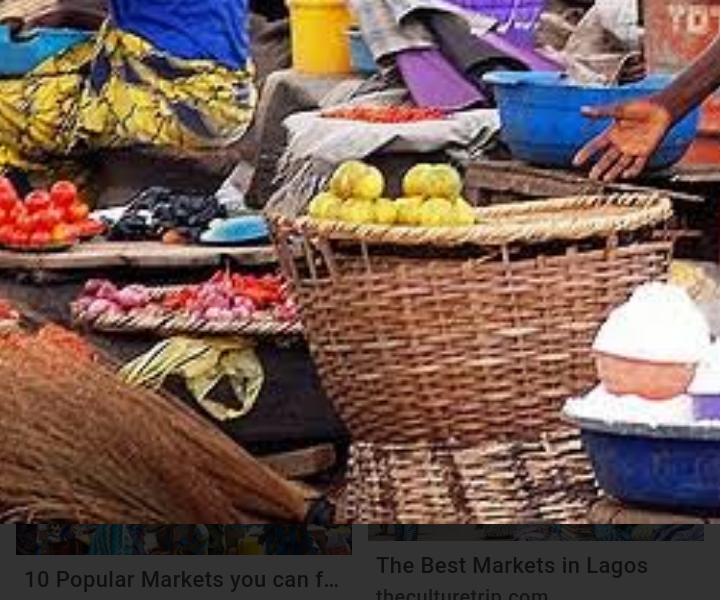Consumers around Nigeria face higher prices for a wide variety of everyday purchases, as supply chain problems bedevil markets for all manner of goods, and energy prices spike to highs not seen in years.
That means Nigerian consumers are paying more for items like food, clothing and household supplies, and for major purchases like cars, appliances and homes. The impact is felt most acutely by low-income families, who find that their limited incomes cover fewer of their immediate needs than before.
The question on the minds of many economists, however, is whether surging prices really are “transitory,” as analysts have been saying for months, or are they the beginning of a period of more sustained price growth?
Reason for the Hike
When in June 2023, telecommunications firms under the aegis of Association of Licensed Telecoms Operators of Nigeria (ALTON), told subscribers to expect price hike in their services, not many people could relate with the implication of that information.
However, the reality is that expected hike has become evident in virtually every goods and services in the country.
ALTON had said the decision to review the prices of their services was to reflect prevailing market realities, especially the recent unification of the foreign exchange market. And to make this a reality, they are working with their regulator, the Nigerian Communication Commission.
According to ALTON through its President, Gbenga Adebayo, who disclosed this to The PUNCH in an interview a price review is needed for their industry to remain sustainable.
“This goes without saying that we will also review rates at the appropriate time after consultation with all the stakeholders to reflect the current cost of inputs,” Adebayo had noted.
He clarified that these discussions have been ongoing for a while, with telcos getting approval to review prices for a while under the last administration.
However, the present reality has indicated that virtually every aspect of the Nigerian society has seen an increase of goods and services with its massive effect on the consuming public bearing the brunt.
Citizens concern
Citizens are however, worry that the handlers of the nation’s economy are underestimating the forces driving prices on everything from food to pharmaceuticals.
In fact, more citizens are being pushed into poverty as the cost of living and purchasing power shrink, even as headline inflation increased 24 times in two years to 27.33 per cent in October, propelled by food inflation, which soared to 31.52 per cent in October 2023 from 30.64 per cent in September 2023.
Food items, accommodation, clothing, electricity, education fees and other prices have all been hit with increase to contend with the unimproved income for the consumers. Also, some of the consumables that used to be a necessity in most homes are now gradually being pushed out of the hands of many consumers.
For example, a loaf of bread now sells for N1100 from N750, 1.4-litre of groundnut oil to N3,000 from N2500N and a crate of egg is now N3,000 up from N2,700.
Speaking on this issue to MediaConsurtium, Mrs. Nma Ikebuwa, a Lagos based resident believes that the effect of the present reality affects the consumers more emotional than the actual weakening of the naira buying power.
For her, the fact that, the amount of money that use to buy certain quantities of commodities cant command the same is frustrating.
“Before now when people take money to the market you can be sure of buying an appreciable amount of things but now with the hike of prizes of goods and services one is not always sure of what to expect in the market again. For example the Titus fish, we use to buy for N1,800 per kilo now sells for about N2,500,” she said.
Continuing, she said, “I told my children this morning that if things remain this way, it will be difficult for people to save for the future because people need to feed today to be able to save for tomorrow, unless if they go to borrowing to make ends meet, but the way it is, one must have enough to be able to loan another”.
On her part, Stella Okoro, a business woman and resident of Sango, Abeokuta, pointed that the effect of the hike in prices is alarming and has thrown a lot of homes in disarray.
According to her, “Shawa fish that use to go for N200 now sells for N700, making it out of the reach of the common man. Those who have large family, how many of them can cope with this?”, she queried.
She therefore called on the government to look into the present situation and ameliorate it as a lot of homes are not finding the situation easy.
Chinedu Odah, an Abuja resident explaining the impact of inflation on him, said, “Through the past months, I have been on a daily survival mode because of hikes in the price of goods and services.
“At the same time, there is also an upsurge in the cost of education, so I am not only struggling to cater to feed my family but I am also met with the battle to keep them in their various schools regardless of the increment.
“So, truthfully, I derive my strength from a saying: when it gets overwhelming, remember God is too big to owe you. Huge sacrifices are being made on my end, given my position and responsibility in the home, just to try and keep up with the running costs,” he said.
Also speaking, Mrs. Theresa Amuche, business woman, told MediaConsortium that, te rising cost of living in Nigeria poses significant challenges for consumers, stressing that, the escalating cost of consumer goods places a heavy burden on consumers with essentials commodities becoming more expensive, households face difficulties in budgeting and meeting basic needs.
According to her, this inflationary trend diminishes the real income of individuals, eroding their purchasing power. As a result, access to quality goods and services is compromised, leading to a challenging economic environment for the average Nigerian.”
“Therefore, Inflationary pressures, increased prices of essential goods, and reduced purchasing power are impacting households. Basic necessities like food, housing, and healthcare are less affordable leading to a decline in the overall quality of life for many Nigerians.” She added.
Emmanuel Christopher who’s into dry-cleaning business in Gombe State told the investing unit of MediaConsortium that the condition is between and life, stressing that he has not experience such in his more than four decades of been a Nigerian.
According to him, “sometimes you will wake and it will be as if you should commit suicide. Reason being that, you have kids who have not eaten, they are also at home because you cannot afford to pay their school fees and landlord is the side with his own pressure.
A POS operator, Elejo Otene, a resident of Ankpa in Kogi State said that, they are just surviving by the grace of God, adding that, to worsen the situation, Multichoce, owners of GOTV hiked the price of GOTV subscription two times in this year and that’s the brand of Pay TV that ordinary people like them can afford.
The mother of two, whose husband is a graduate turned Okada rider due to unemployment in the country lamented that, if something is done urgently to salvage the situation, Nigeria will see what led to French Revolution.









